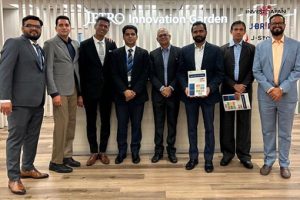In a collaborative effort to foster sustainable software development practices, Microsoft and Singapore’s Infocomm Media Development Authority (IMDA) have introduced a comprehensive set of digital sustainability guidelines. These guidelines, developed with support from the Green Software Foundation (GSF), aim to accelerate education and awareness among businesses and developers.
The newly unveiled guidelines serve to clarify the intricate relationships between hardware and software sustainability principles and measurements. Microsoft noted that they offer straightforward guidance on the integration of energy efficiency, carbon awareness, and hardware efficiency into software engineering and development processes. By adhering to these principles, applications and solutions can be designed to be inherently energy-efficient and carbon-aware.
According to the guidelines, sustainable software is characterized by being “carbon-efficient,” emitting the least possible carbon by design through code, architecture, and other deliberate choices. Such software tends to be cost-effective, high-performing, resilient, and optimized, all while contributing positively to environmental sustainability.
The guidelines are built around three core principles that guide the reduction of carbon emissions in software:
- Energy Efficiency: Focusing on optimizing energy consumption in software development.
- Carbon Awareness: Emphasizing a deep understanding of software behavior in terms of carbon emissions, using methodologies like the Software Carbon Intensity (SCI) specification developed by GSF.
- Hardware Efficiency: Addressing hardware considerations to enhance software’s environmental efficiency.
Developers are provided with practical recommendations to align their software development with these sustainability principles. Suggestions include leveraging tools to measure software carbon emissions, minimizing resource consumption, and adopting renewable energy sources. The guidelines also encourage the use of open-source software and the selection of cloud-based solutions.
Jeth Lee, Chief Legal Officer of Microsoft Singapore, emphasized that these guidelines reflect a collective commitment to making a positive impact on the environment. He stated, “Providing developers with practical means of tracking and reporting emissions ensures that we are not simply embracing sustainability as an aspiration but actively working towards our net-zero targets.”
Chee Wei Nga, Director for the Emerging Technology Office of the BizTech Group at IMDA, highlighted the significance of these guidelines in advancing Singapore’s aspiration to become a prominent digital sustainability hub in the region. He stated, “Greening the ICT sector is important to IMDA, and we will continue to work closely with partners such as Microsoft and the Green Software Foundation to enable developers and businesses to understand energy efficiency, carbon awareness, and green software development.”
These guidelines were also implemented during the Singapore GreenTech Challenge in April, where developers collaborated to create carbon-efficient solutions, showcasing the practical application of sustainable software development principles.






















